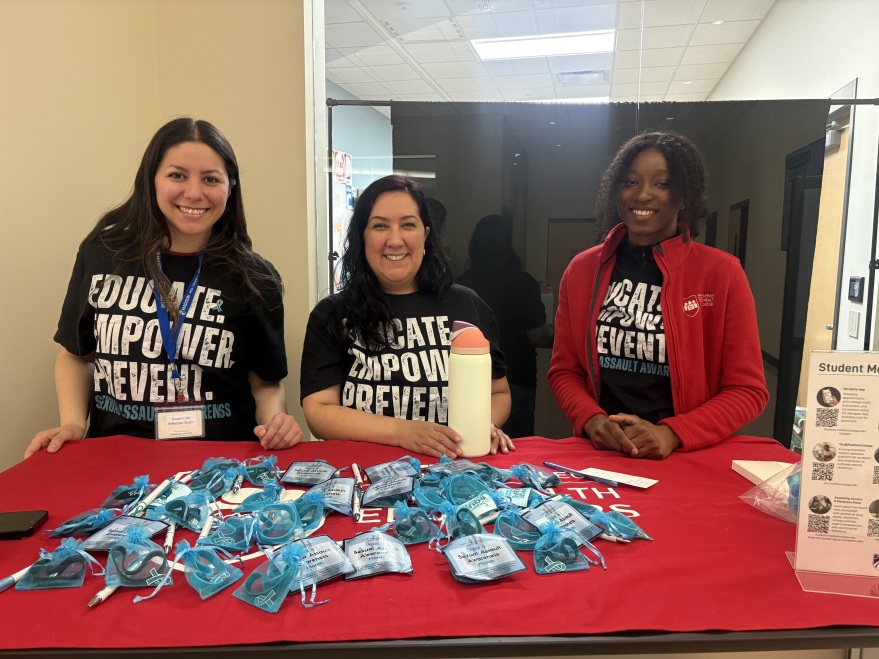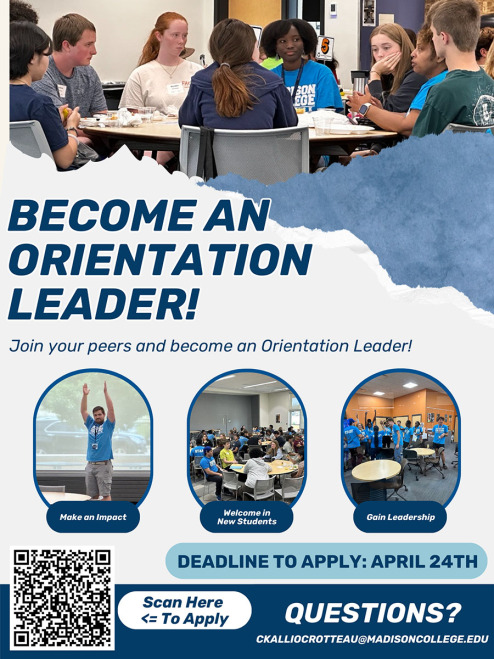Thirty people at Madison College’s Truax campus were asked what came to mind when they heard the word, “argument.” Their answers ranged from fighting, to discussion, to parameters in a function for programming. Two individuals even answered with “father” and “dad.” The majority of answers reflected negatively on the word, and only a handful of people answered with a logical understanding.
“Argument is, without the emotion there, simply a statement of reasons of why you think something is the case,” said Laura Osinski, who has a doctorate in philosophy.
In 2006, Osinski became the first full time instructor in the philosophy discipline at Madison College, and is now currently one of three. There are twelve part-time instructors.
Kerry Keiser, a student enrolled this semester in Osinski’s Introduction to Logic and Critical Thinking course said, “[This course] helps you with everyday kind of stuff. It teaches you to analyze arguments.” The course fulfills the Quantitative Reasoning Part A (QR-A) requirement for the University of Wisconsin-Madison.
Thinking about thinking
“This college has been very supportive of philosophy in general, and specifically, in how it can actually improve both our professional lives and our personal lives,” Osinski said.
Currently, there are roughly 40 philosophy-related sections offered at Madison College each semester in Madison and at regional campuses. The faculty collaborates with the corresponding faculty at UW-Madison to develop curriculum. They continue to add new course offerings and evaluate the need for prerequisites in order for students to get the most out of their classes.
Osinski graduated from UW-Madison with a bachelor’s degree in Genetics and a master’s degree in Public Affairs. She went on to work as a Program Evaluator for the Legislative Audit Bureau. Her work in government prompted her to complete a Graduate program in Philosophy, focusing on the ethical, social and political dimensions.
“[Good reasoning] is not something that we just intuitively know – it seems like we would – we’re humans, so of course we know how to think; but it’s funny, it takes quite an effort to learn the basic foundation of how to evaluate reasons,” Osinski said. “If we can show learners how to develop their own way of justifying and reasoning through problems, they can develop a sense for why one conclusion is better supported over another.”
Proactive and collaborative mindset
“I find that we’re nearing a point where people simply want to shut down and say nothing because they fear that there’s no way to actually engage in a meaningful way with meaningful disagreement,” Osinski said. “It runs right down into an emotional reaction, and that’s a real shame because it is possible to have disagreement actually be a sign of respect.”
Learning to dissociate from immediate emotional reactions is key, as is understanding what reasons are given before jumping to a response. “It doesn’t help anyone if we are talking past each other,” Osinski said. Take the time to clarify things you don’t understand: ask questions.
“Oftentimes, the disagreement is less than it seems. We think there’s this massive disagreement, but when we actually take apart what we’re disagreeing about – it’s two separate issues.” Too often it is the inability to think critically that masks an existing agreement, resulting in those involved thinking that there is more conflict than there really is.
The philosophy discipline gives students a foundation of conceptual understanding and vocabulary for evaluating and having constructive discussion with constructive disagreement. Critical thinking aims at reaching correct conclusions and making wise decisions based on those conclusions. Sorting through relevant and irrelevant considerations is really important, as is identifying the parts of the argument: what’s being asserted, and what are the reasons for it?
“Wise decisions are going to come out of avoiding error. We have to be intellectually humble to know that it might be possible that we’re mistaken,” Osinski said.
The notion that we are fallible – that we can make mistakes – is required in order to think critically. This makes us less emotionally attached to opinions, and more open to learning about contrary views in order to avoid errors.
Encouraging communication
“An educational system should be designed to foster it. That is a bit of a challenge because it’s easy in a big classroom to feel like someone is judging you (whether they know what they’re talking about or not); as opposed to an environment where we’re all just trying to discover things. We’re all just interested in learning. And it’s not about whether someone knows something or not. It’s about how we explore evaluating reasons,” Osinski said.
There is a mutual respect for people that are willing to admit to not knowing what others are talking about in a conversation. It’s a waste of time to pretend to know what others are talking about just to avoid feeling inadequate.
“There are a lot of things we don’t know, and that’s OK,” Osinski said. “Changing our mind is not a sign of weakness. It’s a sign of maturity and thoughtfulness.”
Fear of embarrassment holds people back from stating what is on their mind. This is problematic. “Success is almost always tied to divergent views. People who have a diversity of views are going to be better at coming to correct conclusions and making wise decisions as a result of it,” Osinski said. “It’s not about winning. It has to be about furthering our understanding. We have to want to see this as a collaborative effort at understanding better what we’re trying to know. We are trying to know more. It doesn’t help if it’s set up as a contest.”
People love to win in our culture. It has been engrained in us throughout childhood and into adulthood; but none of us will win if everyone is losing. There are many important decisions that have to be made on a worldwide scale – from climate change and fossil fuels to economics and human rights – and those decisions won’t be accurate if we don’t adopt a more collaborative approach.
“If we are focused on ‘What’s best for me,’ it is unlikely that we will be considering the standards of good reasoning in the conclusions we’re coming to,” Osinski said.


























